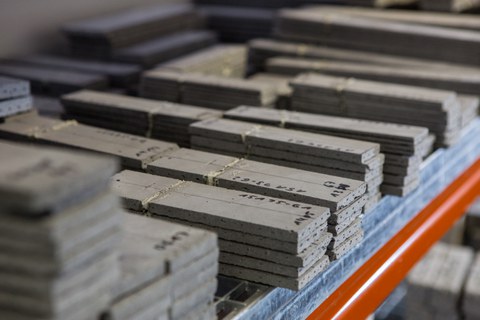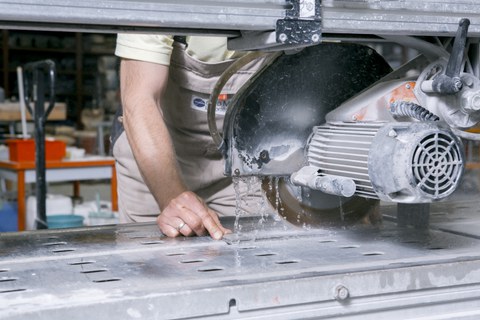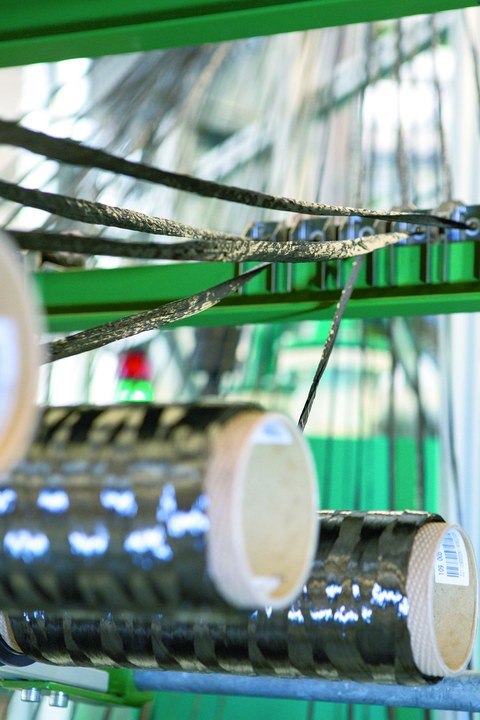C3-E-I-a: Process-integrated quality assurance
Table of contents
Project data
| Titel | Title TP C3-E-I-a: Entwicklung einer prozessintegrierten Qualitätssicherung zur Fertigung von Carbonbeton im Verbundvorhaben C3-E-I: Qualitätssicherung Carbonbeton | SP C3-E-I-a: Development of a process-integrated quality assurance of carbon concrete as part of the joint research project C3-E-I: Quality assurance of carbon concrete Förderer | Funding Bundesministerium für Bildung und Forschung (BMBF); Projektträger: FZ Jülich GmbH / C3 – Carbon Concrete Composite Zeitraum | Period 05/2017 – 06/2020 Verbundvorhabenleiter | Leader of the joint research project Prof. Dr.-Ing. Dr.-Ing. E.h. Manfred Curbach Leiter Teilvorhaben | Subproject manager Prof. Dr.-Ing. Dr.-Ing. E.h. Manfred Curbach Bearbeiter*in | Contributors Dipl.-Ing. Elisabeth Schütze, Dipl.-Ing. Jan Panzer Projektpartner | Project Partners Institut Für Textilmaschinen und Textile Hochleistungswerkstofftechnik, TU Dresden | Institut für Werkzeugmaschinen, TU Dresden |
Report in the annual report 2018
QUALITY ASSURANCE OF CARBON REINFORCED CONCRETE

Lagerung von Verbundprobekörpern aus Carbonbeton unter kontrollierten Bedingungen in der Klimakammer
The research project C3-E “Development of a quality management system for the production of carbon reinforced concrete” focuses on the correlation between the manufacturing process and the material properties of carbon reinforced concrete. In carbon reinforced concrete, the reinforcing elements are made of carbon fibres instead of steel, and hence they play a significant role in the structural stability and reliability of the building. As high demands are placed on the material, consistent material behaviour is very important within the construction industry. Quality assurance of carbon reinforced concrete guarantees the material properties of the reinforcement, the concrete and the interaction behaviour between the components by defining and testing the manufacturing parameters.

Versuchsvorbereitung: Sägen von Verbundprobekörpern zur späteren Bestimmung der Materialkennwerte
Therefore, the whole manufacturing process is being modelled in a newly developed database where the material properties of carbon reinforced concrete are linked to the manufacturing process. Based on these data, the analysis of the influence of the manufacturing process on the material behaviour of carbon reinforced concrete can be done very easily and accurately.
The data input is done by a direct digital connection between the database and the textile machines of the Institute of Textile Machinery and High Performance Material Technology. This way, there is no additional documentation effort needed for this part of textile manufacture. The data input of the manual manufacture process of the compound material is done by hand as it has not yet been automated.
In order to be able to correlate the material behaviour to the manufacturing process, uniaxial tensile tests, textile pull-out tests, bending tests etc. are done as well as a description of geometric details of the yarn in the textile.
At the end of the project, there will be an overview of tests, material handling information, stocking conditions and a proposal for sight testing of the textile as well as a link to the existing database regarding the reference textile.
Report in the year book 2017
QUALITY ASSURANCE OF CARBON REINFORCED CONCRETE

Manufacturing of carbon textiles; here: carbon fibre tubes installed in a textile machine
Concrete reinforcements used in construction are assumed to carry the tensile stress in the elements, as the tensile strength of concrete is very low, and it is usually neglected in the calculations. In carbon concrete, these reinforcing elements are made of carbon fibres, which are provided as textiles or bars. In construction, high demands are placed on these materials, because an unpredictable failure would pose a major security risk. It is necessary to ensure the material properties of carbon concrete to facilitate its entry into the market.
To create a quality management system for composite materials, it is not only necessary to identify and characterize the properties of the components, but also the very complex interactions in the composite material. This also applies to the manufacturing process; the manufacturing processes of the components might interact, and therefore, it cannot be analyzed independently. After an intensive analysis of the manufacturing and testing processes used in the project “C3 – Carbon Concrete Composite”, a digital, modularly constructed system was built. It allows combining different steps during the manufacturing and testing process to model its variations. It is based on the current state of development and describes each process step with the already known and potentially quality-relevant parameters. Variations in the production and testing of carbon concrete are on one hand traceable, and on the other hand, can be analyzed across process steps. The uniformity of the structure allows the comparison of a large number of test results and can also allow conclusions about quality-relevant parameters.
The aim is to make the system available online to all members of the C3 consortium. Tests will be documented by the prescribed form and may be exchanged and published by the applicable confidentiality guidelines.
With the help of future research results, the modeling of manufacturing processes will be continuously adjusted.
